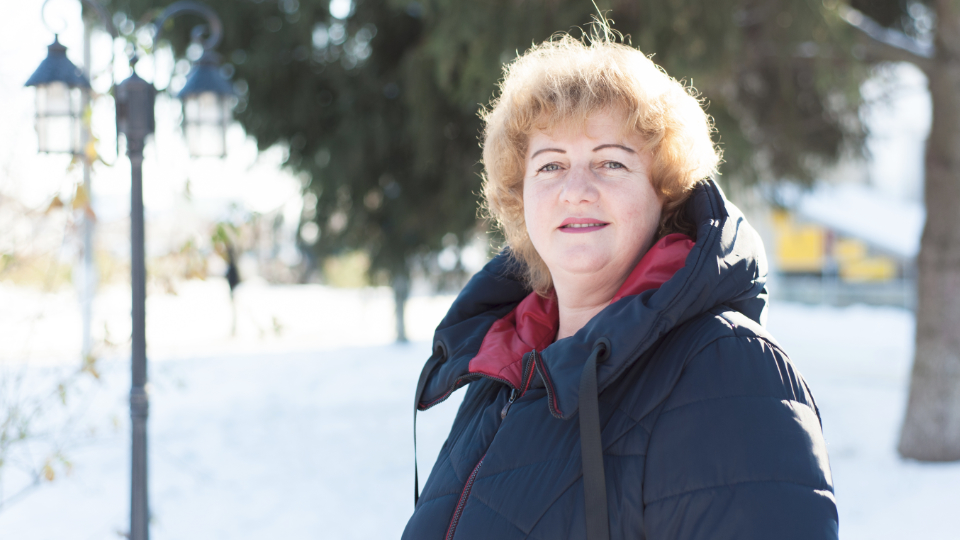In the words of Olga Tsyba: “Women have more power than ever before”
Olga Tsyba, 42, is an activist and newly elected member of the local council in the conflict-affected Bilovodsk, in Luhansk region of eastern Ukraine. After participating in a UN Women-led training, Tsyba became a community group leader, established a civil society organization, and advocated for the set-up of a gynecological service for women in her community. UN Women has supported women in eastern Ukraine with increasing their participation in local political life through advocacy and leadership skills development and by providing guidance in building a meaningful dialogue with local authorities. This work is implemented as part of the United Nations Recovery and Peacebuilding Programme, implemented by UN Women, UNDP, UNFPA, and FAO.Date:

![]()
I’ve been re-elected as a member of the local council for the second time. It is impossible to buy the reputation and trust of people, you need to work for it your whole life. People in my community respect me because, as a member of the local council, they can approach me any time. My cellphone is always on, and people can call me for various reasons ranging from street lighting problems to personal issues. You have to know people, especially those you represent. As a politician, I can't just stand still, I need to fulfil my mandate and serve the people who elected me.
The number of women elected officials in our local council after the elections in 2020 increased from 5 to 10 out of 26 seats. This is almost half and it's a great leap for our community. Women now have more power than ever before. If not us, who?
We need more women involved in the political process, because women's political participation results in tangible gains and greater responsiveness to women's needs. Male politicians don’t fully realize that women and girls have specific health needs, and our local health system fails them. An approach, which is based on the recognition that men's and women's health needs are different, is crucial. For example, there was no gynecological service in my village, and 350 women, including pregnant women, were forced to travel 40 kilometers to the nearest city for a check-up. As a leader of a civil society organization, I advocated for the establishment of such a service in our village.
To be successful, you need to continually gain new knowledge and skills. I have learned a lot about advocacy, gender equality, and community mobilization for empowerment. My way of thinking has completely changed. I used to think that gender equality was only about women, but now I realize that when women and men have equal opportunities, the whole society benefits”.